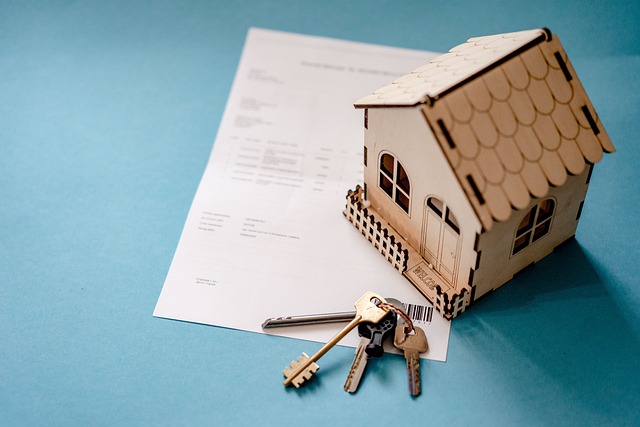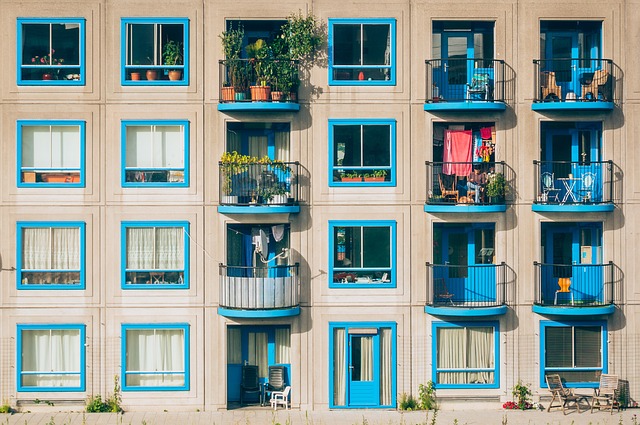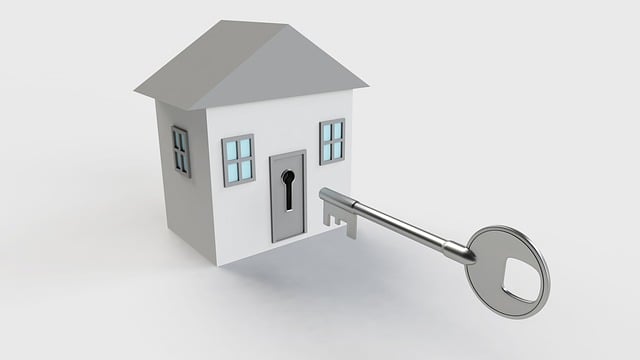Merkel powerless against rent-seeking: Do empty offices solve German housing shortage?
Rents are rising inexorably in major cities. Even buying a home in sought-after locations is becoming unaffordable for most. Too little new housing is being built. Things are getting tight. Even after the German government's housing summit, the issue remains a construction site. Can the Corona pandemic, of all things, bring a solution?
Wer in München nicht mehr als 30 Prozent seines Einkommens in eine durchschnittliche Wohnungsmiete stecken will, sollte mehr als 105.000 Euro brutto im Jahr verdienen. In Frankfurt am Main und Stuttgart kommt man hier schon mit gut 80.000 Euro Jahresverdienst an eine Wohnung, in Heidelberg rund 70.000 Euro.
FOCUS Online had examined in January, how much money you must earn in each case, in order to rent an apartment of 68 square meters in a region and spend for the rent not more than 30 percent of your income. According to the Federal Statistical Office, singles currently live in an average of 68 square meters. For some dual-income couples, rent may not be a problem, and some will have to spend a higher proportion of their household income, but for most single earners, rent will remain unaffordable in Germany's major cities.
Und die Belastung für den Mieter nimmt unaufhaltsam zu: Die deutsche Mietwohnung wird von Jahr zu Jahr teurer. Die Preise für Häuser und Wohnungen steigen in den meisten Regionen Deutschlands seit Jahren unaufhörlich. In der Folge wird der Wohnungskauf daher immer attraktiver. Wer kauft statt mietet, spart deutschlandweit im Schnitt 48,5 Prozent, so das Ergebnis einer Studie des Instituts der Deutschen Wirtschaft (IW) aus Köln. Mit anderen Worten: Eigentümer zahlen fast 50 Prozent weniger als Mieter fürs Wohnen. In Köln sind es sogar fast 60 Prozent. In 90 Prozent der 401 vom IW untersuchten Kreise und kreisfreien Städte schlägt Eigentum die Miete.
Und so steigen wegen der hohen Nachfrage nach Wohneigentum und der niedrigen Bauzinsen auch die Kosten fürs Eigenheim. Nach Berechnungen des Baufinanzierers Interhyp stieg der durchschnittliche Kaufpreis einer Immobilie inklusive Nebenkosten von durchschnittlich 277.000 Euro im Jahr 2010 auf 434.000 Euro im 1. Halbjahr 2020 – ein Plus von 56,7 Prozent.
Conclusion: There is too little living space in Germany. The price spiral is spiraling ever higher.
Lesen Sie zum Thema auch: Hohe Preisunterschiede je nach Region – So viel Haus können Sie sich als Durchschnittsverdiener in Deutschland leisten
Social housing in retreat: too little housing for the poor
Bauminister Horst Seehofer (CSU) sieht die Bundesregierung bei der „Wohnraumoffensive“ hingegen auf dem richtigen Weg. Bei einer Bilanzveranstaltung in Berlin versichert er, bis zum Ende der Wahlperiode werde das selbstgesteckte Ziel von 1,5 Millionen neue Wohnungen erreicht. Die noch fehlenden Baumaßnahmen sollen noch im Laufe dieses Jahres auf den Weg gebracht werden.
Seehofer: "Last year alone, 300,000 homes were built despite the Corona pandemic. That's the highest level in 20 years." He added, however, that the end of the road is not yet reached in addressing the housing shortage: "We still have a lot of work to do."
Zum Start der im Koalitionsvertrag festgeschriebenen „Wohnraumoffensive“ vor knapp zweieinhalb Jahren hatte Seehofer insgesamt 1,5 Millionen neue Wohnungen versprochen. Bis Ende des Jahres werden es wohl 1,2 Millionen. Zusätzlich rechnet das Bauministerium mit etwa 770.000 Baugenehmigungen. Der Bund gebe für den sozialen Wohnungsbau eine Milliarde Euro pro Jahr aus, betont auch der Koalitionspartner der Union, die SPD. Man habe das Wohngeld angepasst, das Baukindergeld eingeführt und Sozialwohnungen gebaut – „auf hohem Niveau“.
For example, although more than 25,000 social housing units were built nationwide in 2019, at the same time nearly 65,000 units fell out of the social housing obligation. The bottom line is that there were fewer social housing units. For the IG Bau trade union, the offensive has therefore failed. "In terms of housing construction, the transfer is at risk for this federal government," said IG Bau head Robert Feiger. The rents went through the roof, while every twelve minutes a social housing disappears from the market. According to IG Bau, rents for simple apartments for Hartz IV recipients, for which the state bears the costs, have risen by 28 percent on average in Germany since 2015.
In the opinion of Katrin Göring-Eckardt, head of the Green Party parliamentary group, the housing policy of the grand coalition of CDU, CSU and SPD is also not bringing any progress: "The government's record is devastating: exploding rents, dwindling social housing, hardly any affordable property for families in conurbations, plus more vacancies and desolate town centers." According to Göring-Eckardt, the explosion of rents is one of the most pressing social problems in the country: "The federal government has not managed to alleviate the housing shortage in our cities, it has even exacerbated it." Furthermore, far too many social housing units were lost. "Horst Seehofer could have prevented this social robbery with a new law that permanently secures social housing."
Der baupolitische Sprecher der SPD-Fraktion im Bundestag, Bernhard Daldrup, will die Vorwürfe der Grünen nicht auf sich und der Koalition sitzen lassen: „Kritik und Forderungen der Grünen in Berlin stimmen mit ihrem Handeln in Ländern und Kommunen nicht überein. Immerhin sind die Grünen in elf Bundesländern an der Regierung beteiligt und ebenso in zahlreichen Kommunen politisch verantwortlich.“
Solutions needed - not only for metropolitan areas
But political wrangling and playing the blame game doesn't help people. And when it comes to construction and housing, it's not just about the major metropolitan areas, but also about inner cities and village centers. There, apartments are often vacant, and sometimes houses are falling into disrepair. In order to make town and village centers more attractive, CSU Member of Parliament Emmi Zeulner, for example, proposes locating universities and university chairs in rural regions, making the protection of historical monuments flexible and increasing tax depreciation. Zeulner is the rapporteur for the CDU/CSU parliamentary group in the Building Committee: For Zeulner, locating universities in rural areas has several advantages: "Not only will existing university locations be relieved, but at the same time we will use this to provide targeted growth impulses in rural areas."
But to make rural areas more attractive, they also need more up-to-date infrastructure, such as broadband Internet, rail connections, more shopping facilities or hospitals and specialists - and of course jobs. As long as there is a shortage of the bare essentials in rural areas, people will continue to move to the cities.
Und dort beklagen etwa der Eigentümerverband Haus und Grund und sein Präsident Kai Warnecke eine bloße Mangelverwaltung. Es gebe zu wenig Anreize zum Neubau von Eigenheimen und Mietwohnungen. Vermieter würden durch Vorgaben und Gesetze belastet, so Warnecke. Es müsse sich lohnen, Wohnraum anzubieten. Die Rendite privater Vermieter in Deutschland liegt nach Angaben des Verbands zwischen ein und zwei Prozent: „Die Objekte werden gekauft von denjenigen, die mit ihnen spekulieren wollen“, sagt Warnecke: „Sie haben keinen Bezug mehr zum deutschen Wohnungsmarkt.“ Rhetorisch fragt er: „Wer soll in Zukunft Ihr Vermieter sein? Der Bürger von nebenan oder der Fonds auf den Cayman Islands?“
Home office creates space: Converting empty offices into apartments?
Möglicherweise könnte ausgerechnet die Corona-Pandemie die Wohnungsnot in den Städten lindern. Denn wegen des derzeitigen Trends zum Home-Office steht in den Städten massenhaft Büroflächen leer. 325.000 Wohnungen könnten so in den kommenden vier Jahren neu entstehen, wenn man die Büros in Wohnungen umbauen würde. Das ist das Ergebnis zweier Studien des Eduard-Pestel-Institutes aus Hannover und der Arbeitsgemeinschaft für zeitgemäßes Bauen aus Kiel errechnet. Zum Vergleich: Im Jahr 2019 lag die Zahl der fertiggestellten Wohnungen bundesweit bei 293.000.
The studies were commissioned by the "Social Housing" alliance of associations, which includes the German Tenants' Association, Caritas, the Construction, Agricultural and Environmental Workers' Union, the German Society for Masonry and Housing Construction as the umbrella organization of the masonry brick industry, and the German building materials trade. And they associate the figure with clear political demands. There must be a "strict social quota" for the additional apartments so that office buildings do not become luxury lofts. In addition, the state would have to set up a special program to promote the conversion.
But whether there are actually so many vacant office spaces that are no longer needed is debatable. The idea has charm, however, because it could help not only to alleviate the housing shortage but also to strengthen city centers. But the Institute of German Business (IW) recently found in a survey that only 6.4 percent of companies in Germany plan to reduce their office space. So so far, more home office does not mean that offices are already being freed up on a larger scale. And in sought-after metropolitan areas such as the Stuttgart region, there is more likely to be too little office space than too much. According to a study, the vacancy rate in the state capital was only two percent in the fall. And rents have not been depressed by the Corona pandemic, the real estate analysis company Bulwiengesa has determined on behalf of the city of Stuttgart and the Stuttgart Region Economic Development Corporation. In addition, retrofitting office space with kitchens and sanitary facilities is extremely costly.
Rent cap demanded for the whole of Germany
That leaves the controversial rent cap from Berlin. Could it be the panacea for German tenants' stretched wallets? According to an alliance of trade unions, tenants' associations and social welfare organizations, Germany has no other choice. They are calling for "Rent freeze! Because your home is at stake." If it were up to the alliance, rents should be frozen at their current level nationwide for six years.
Adolf Bauer, President of Sozialverband Deutschland (SoVD): "Although the development of rents affects everyone equally, it makes poor people in particular even poorer. Single parents, pensioners and people with a migration background are particularly disadvantaged, as are single households and recipients of transfer payments." Bauer wants more subsidies and stronger market regulation: "Only more public housing subsidies, more social housing construction and more prudent building land mobilization can prevent speculation and promote affordable housing."
Doch in Berlin – dem Vorreiter in Sachen Mietendeckel – hat das Einfrieren der Mieten für bizarre Verhältnisse auf dem Wohnungsmarkt gesorgt. Zwar sanken laut einer Analyse von ImmoScout24 zwischen September 2019 und September 2020 die Angebotsmieten für die vom Mietendeckel betroffenen Wohnungen um fünf Prozent von durchschnittlich 12,91 auf 12,26 Euro pro Quadratmeter. Gleichzeitig verringerte sich das Gesamtangebot an Mietwohnungen in Berlin jedoch massiv um 41,5 Prozent. Das Angebot von Bestandsmietwohnungen sank sogar um 59,1 Prozent.
Dass der drastische Angebotsmangel in Berlin nicht durch die Corona-Pandemie hervorgerufen wurde, zeigt ein Blick auf die anderen Top-Metropolen in Deutschland. Denn in Hamburg, Düsseldorf, Frankfurt am Main, Köln, München und Stuttgart hatte das Wohnimmobilienangebot auf ImmoScout24 im gleichen Zeitraum anders als in Berlin deutlich zugenommen. So stieg in diesen Top-6-Städten das Gesamtangebot an Mietwohnungen im gleichen Zeitraum um 35,3 Prozent.
Landlords in Berlin are hesitant to relet because of the rent cap. Many prefer to sell their apartments. The Federal Constitutional Court wants to rule on the admissibility of the rent cap by June.
Vienna and Amsterdam can become models for major German cities
So bleibt es wohl noch für einige Zeit beim jahrzehntelangen Trend, sich ins Umland der Städte abzusetzen und zwischen Heim und Arbeitsplatz zu pendeln. Doch die so entstandenen Pendlerströme führen mittlerweile in vielen deutschen Großstädten zum Verkehrskollaps. Es fehlt vielerorts an Bahnanbindungen und dem Ausbau des öffentlichen Personennahverkehrs. Abhilfe würde wiederum günstiger Wohnraum in den Städten schaffen. Und so beißt sich die Katze wieder in den eigenen Schwanz.
Many urban planners therefore advocate the large-scale purchase of apartments by local authorities. This is the only way to prevent rent increases and real estate speculation in cities. As early as the 1920s and 1930s, Vienna promoted housing cooperatives and built tens of thousands of municipal apartments. And even today, there are 220,000 apartments owned by the city of Vienna. Vienna has thus removed a large part of its real estate supply from the speculative real estate market.
Architect and urban planner Steffen de Rudder of Bauhaus University Weimar: "60 percent of people live in Vienna in municipally subsidized housing. That's great. In Amsterdam, it's similar. The city owns large housing projects and can control more. In many German cities, that has been out of hand. But what also shows: The housing issue is mainly a matter of politics, less of urban development."





